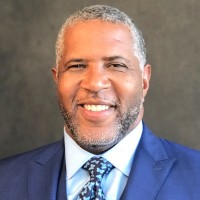- The terms “implicit bias” and “unconscious bias” are often used interchangeably to describe forms of prejudice that an individual might hold but might not be unaware of holding.
- Implicit bias is different from explicit bias in the level of awareness a person has of it. Explicit bias is based on attitudes and beliefs a person holds about a certain group.
- Examples of unconscious bias include affinity bias, confirmation bias, attribution bias and conformity bias.
Table of Contents
Diverse groups are working together now more than ever in the global economy. As such, some individuals within the groups can experience subtle forms of discrimination that arise from implicit and unconscious bias. The effects of these biases extend past the workplace. They also affect healthcare, policing and other areas that affect well-being.
Ahead, we discuss definitions of implicit bias and unconscious bias and explore implicit bias vs. unconscious bias. We address how implicit and unconscious bias differ from explicit or conscious biases and provide implicit bias examples. Finally, we explore ways to mitigate instances of implicit bias.
What Is Implicit Bias?
Implicit bias is a form of prejudice that results in automatic assumptions about specific groups. It often leads to unintentional forms of discrimination.
The term “implicit bias” dates back to 1995, when psychologists Mahzarin Banaji and Anthony Greenwald used the phrase in an article. They wanted to express that some of our behavior is influenced by factors we are not aware of. Since then, the term has been widely used in fields like psychology, sociology and academia.
Some of the unintended consequences of implicit bias include:
- Unfair treatment of others
- Perpetuating negative stereotypes
- Committing microaggressions toward marginalized populations
- Discrimination in healthcare resulting in population health risks
What Is Unconscious Bias?
Unconscious bias describes unconscious prejudices we hold against other groups of people. Essentially, it can be used interchangeably with implicit bias. So, there is truly no implicit bias vs. unconscious bias.Over time, these stereotypes create challenges for diverse groups.
The phrase unconscious bias is more commonly used in corporate environments, the media and technology sectors. It can be used as an umbrella term for the most common forms of unconscious and implicit bias.
What Is the Difference Between Implicit vs. Explicit Bias?
The difference between implicit vs. explicit bias is our level of awareness of these feelings of prejudice. Implicit bias refers to our tendency to automatically judge a person based on preconceived notions of which we are unaware.
Explicit bias is when our actions are based on attitudes or beliefs we consciously hold about others. Acting on explicit or conscious bias can result in discrimination in various forms. The bias is usually based on beliefs about age, race, gender, sexual orientation and ethnicity.
Preconceived notions impact groups already burdened with systemic racism, gender inequity and income inequality. Addressing all forms of bias, especially in the workplace, is vital to gaining equal opportunities for everyone.


Get Industry leading insights from Robert F. Smith directly in your LinkedIn feed.
Get Industry leading insights from Robert F. Smith directly in your LinkedIn feed.
What Are Examples of Implicit Bias or Unconscious Bias?
There are several examples of implicit or unconscious bias, including confirmation and conformity bias. These biases manifest themselves in many ways. Identifying biases help increase our own awareness of them and how they may manifest in our interactions with others.
Here are a few of the most common forms of implicit and unconscious bias:
- Affinity Bias: This is our natural inclination to prefer people with similar qualities to ourselves.
- Confirmation Bias: This bias is when one person’s actions confirm a belief held about an entire group of people.
- Attribution Bias: This form of bias attributes personal successes to merit and the successes of others to external factors. However, it attributes personal failures to external factors and the failures of others to poor performance.
- Conformity Bias: This is how our desire to fit in affects our behavior toward others.
Many more forms of bias can have negative consequences when we interact with others in a diverse environment. It is important to remember that we are unaware of our own unconscious biases.
Implicit Bias in Healthcare
In recent years, implicit bias in healthcare has become a concern. For example, evidence shows that female physicians are more commonly mistaken for nurses. Female residents are also more likely than male residents to get negative evaluations from hospital staff. This affects patient care and creates barriers for female leadership in healthcare.
Medical research has also shown implicit bias against Black Americans waiting for kidney transplants. In April of 2024, NBC News reported that more than 14,000 Black Americans were moved up the waitlist for a kidney transplant. This action corrected a biased test that falsely showed kidneys in Black patients were healthier than those of other races. Because of the biased test, they were placed too low on the waitlist. After the correction, they advanced on the waitlist and got reduced wait times for a transplant.
These instances of implicit bias in healthcare show how harmful it can be if not addressed and corrected. Thankfully, individuals and organizations can help mitigate bias in several ways. These actions can help reduce discrimination in the workplace and society.
How We Can Mitigate Bias
The challenge in addressing unconscious bias lies in the fact that these are not explicit or conscious beliefs. The automatic judgments based on these beliefs helped humans survive as hunter-gatherers. Early humans did not have unified languages and belief systems. So being able to make snap judgments when encountering individuals from other groups was a survival mechanism.
However, mitigating implicit and unconscious bias is necessary to create a more equitable society. There are various ways to measure and address implicit bias in our personal and professional lives. The Implicit Associations Test was developed by Project Implicit, a nonprofit organization, to educate the public about implicit bias. The test measures attitudes and beliefs that we tend not to be aware of in ourselves. The idea of this test is to help reveal how implicit bias is rooted in our own beliefs. Over time, this will help increase awareness of the issue in the general public.
Unconscious bias training is also a common way to address the issue. Many organizations facilitate unconscious bias training that addresses instances of gender, racial and other forms of bias in the workplace, universities and governments. Various unconscious bias resources help shed light on this issue and promote diversity, equity and inclusion.
Organizations like the National Kidney Foundation and the American Society of Nephrology are also working to correct biases in healthcare, such as the one aforementioned. See the LinkedIn post below from philanthropist and entrepreneur Robert F. Smith on the topic.
Stay up to date with the latest from Smith and implicit bias vs. unconscious bias by following him on LinkedIn.






